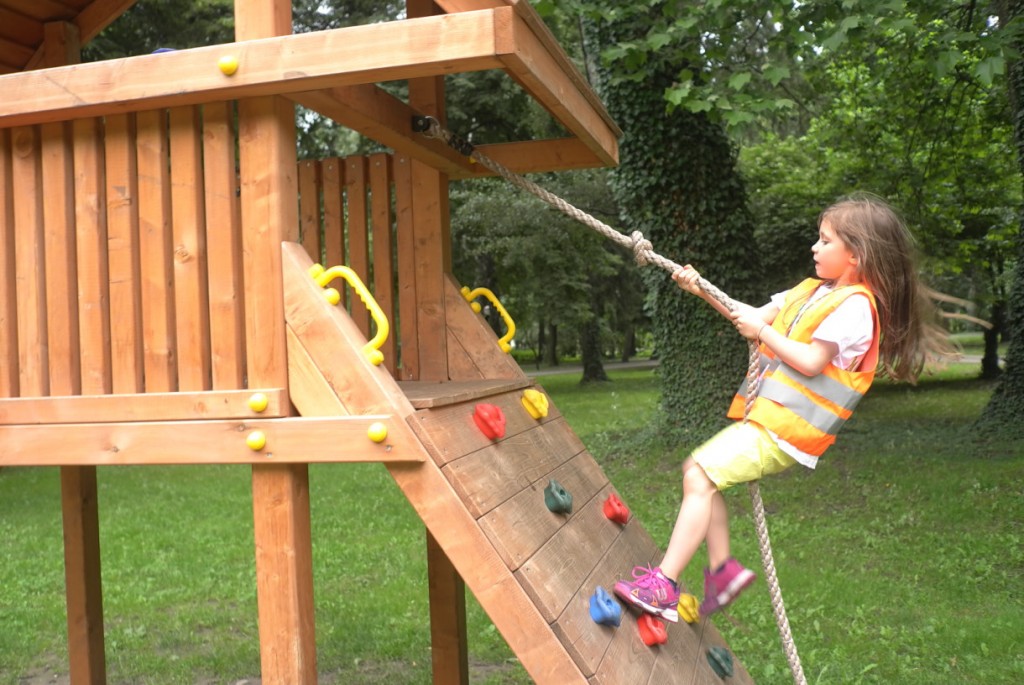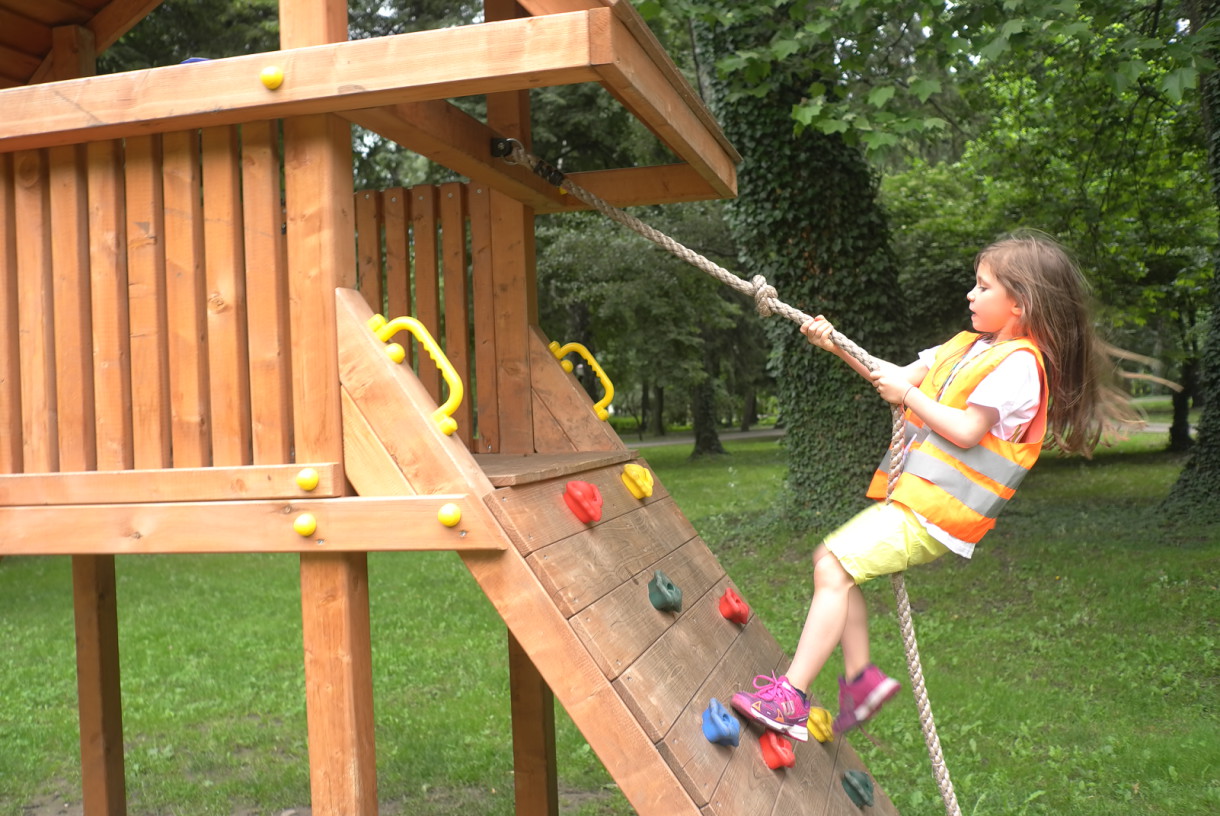LuckyKids English summer camp showcases the campers and staff having fun at all times in images and online, which is true. However there is a sign of any anxiety at first, a natural reaction to a new adventure and a several-week separation from family.
All children experience a mixture of excitement and nervousness when summer camp approaches. For most, excitement is more powerful than nerves, but some children develop anxiety serious enough to get in the way of what should be a fun, formative experience.
Summer camps develop many skills useful for future success: resilience, self-reliance, and social adaptability. The camp experience is being away from home among peers — can help kids develop social skills, separate in a healthy way from parents, and cultivate independence. Camp activities can help them build confidence by demonstrating mastery. Children are often ready for summer-camp away from family, although preparedness varies depending on age, experience, and temperament.
Prepare your child for a summer camp
A lot depends on your child and how you prepare them, the key to helping your child get over pre-camp nerves is to acknowledge his or her feelings and give her tools to help them tame them.

Here are some suggestions:
1) Let your child feel a sense of ownership over the experience. Involve him or her in picking the summer camp and session; familiarise them with the camp environment and teach them about camp activities so they can formulate expectations.
2) Help your child get excited about camp: Take them shopping for new clothes and equipment (if needed) and focus them on fun things about camp that they can anticipate.
3) Avoid focusing on what makes children anxious. Instead of asking leading questions like, “Are you nervous about horseback riding?” ask open-ended questions like, “How are you feeling about the horses?”
4) Don’t trivialise concerns or offer slick reassurances. “There’s nothing to worry about!” or “Everyone loves camp!” actually may discourage your child. Instead, show that you have empathy and acknowledge their concerns.
5) Focus on concrete details in conversations leading up to and during summer camp. Avoid abstract issues like what it’s like to be away from home and not having family around at times they are used to, like meal times.
6) Reflect on your own formative experiences away from home and share positive aspects of them with your child. Show that you are willing to talk about the new things they’ll be doing, whether it’s eating new food, cooking, speaking English all the times, getting along with other children, learning new sports.
7) Go through “rehearsals.” A shorter-term sleepover or a night at Grandma’s will make it easier for your child to be away from home when the time comes.
8) Don’t linger when saying “Good bye”, Keep the goodbyes short, as delaying just causes more mixed feelings.
9) Explain communication is easy and accessible: Outline the schedule for phone calls or chatting as they’re part of the camp’s routine, and make sure your child understands how easy it will be.
10) Have goals for those conversations, so your child will come away focused on how they are adjusting, rather than on how much they want to come home.
11) Try not to communicate your own anxiety; your child can pick up on your feelings even if you don’t actually say them. What you want to share is your confidence in your child and the summer camp experience.
12) Help your child formulate realistic, goal-oriented plans for making friends and settling in. The thrill of completing these plans can give your child a feeling of success and take their mind off their anxiety.
Are YOU (the parents) ready for your child to go to summer camp?
For parents who are anxious about sending kids to LuckyKids summer camp, remember there is a team of professionals and counsellors committed to help your child at all times, even during the night.

Summer camp is a unique situation where your child engages with a large community of peers and learns how to interact socially in a less structured environment than school.
This is a time for them to actively make decisions for themselves and develop a sense of self-reliance. Though you may be concerned and wish to intervene, your supportiveness will give your child room to take ownership over the experience.
When should you worry that a child’s pre-camp anxiety is problematic? You might be concerned if they demonstrate physical symptoms of fear, cold or clammy hands, butterflies, faintness, headache, or nausea.
Excessive tearfulness, or they are unwilling to talk and hiding are also signs that something out-of-the-ordinary is going on. A child might have nightmares about separation, or ask questions like, “What if something happens to you or me when I’m away?” If a child’s reaction is so severe that it interferes with normal day life, they might just not be ready for the experience.
What we do as staff, if a child or parent is over anxious?
Some children come to camp and they are very scared or anxious to be away from their parents or nannies for first time, this can be normal if it is literally their first time away from them.

Best to prepare them first (see point 7 above). Or in some cases they are overwhelmed by meeting so many new people in one day.
All children are different, and some do not show their true feelings, even a parent might not notice their inner stress beforehand. But if a child is showing signs of stress, crying or shaking, we give them extra support; we have even allocated one single counsellor to one child before.
In most cases, children soon get used to being away from home and get used to camp life quite quickly. Children adapt quicker than adults and it only takes a day or two for them to settle in.
What about the parents?
Parents can also be very anxious, parents who are over-worried; call too often or turn up too often to check that their child or children are ok. There really is no need to do this, at LuckyKids children speak to their parents every day via phone or if the parents are staying in the hotel they can even see each other every day anyway.

If a parent is too worried we try to reassure them that all is ok, parents who are over-protective can have a negative effect on their child, as children might see it as “Maybe my parents are worried for a reason.”, then the child starts to worry.
Parents too start to settle down after a day or two and they then start to enjoy their peace and quiet. Parents are given the phone number of the camp managers in case of emergencies. Children are given their mobile phones every evening, so there is no need for either child or parent to worry. If a prospective parent would like to discuss anything before booking a camp they can always call in advance or email, we are always willing to help.
Written by Neil Waters
English Coordinator

